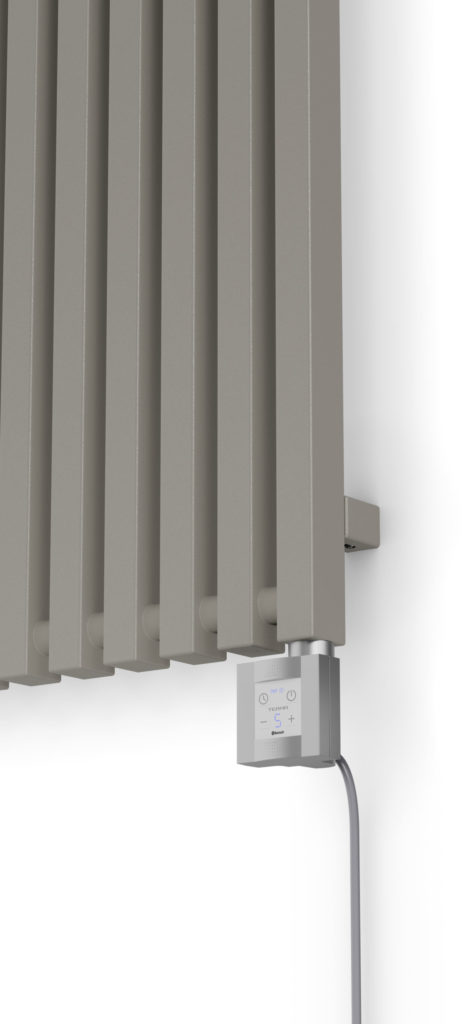Electric Radiators: Uncover the Most Efficient for Your Home Now!
What type of electric radiator is most efficient?: Unravelled the 10 Options for Your Home
In the face of rising energy costs and growing concerns about climate change, finding the most efficient and eco-friendly heating solutions is more important than ever. Electric radiators, with their versatility and ease of installation, have emerged as a popular choice for many homeowners. However, with a plethora of options available, selecting the most efficient type can be a daunting task.
This comprehensive guide will delve into the world of electric radiators, providing insights into their unique characteristics, efficiency levels, and eco-friendly credentials. We’ll explore the top 10 most efficient electric radiator types, helping you make an informed decision that aligns with your heating needs and environmental consciousness.

Harnessing the Power of Efficiency
When selecting the most efficient type of electric radiator, there are a few key factors to consider:
1. Smart Radiators
Smart radiators are WiFi-enabled models that allow you to precisely control the temperature and set schedules through an app. This allows you to heat each room only when needed and avoid waste. Top options like the Haverland WiFi Smart Heating allow intelligent zoning control for maximum efficiency.
2. Fan-Assisted Radiators
Fan-assisted electric radiators use built-in electric fans to draw air over the heating element and increase heat circulation. This allows them to warm up rooms faster using less energy. Quality options like the Dimplex Opti-myst offer this type of efficient technology.
3. Oil-Filled Radiators
Oil-filled electric radiators work by heating oil reserves within a sealed compartment. The oil holds the heat and releases it slowly over time. This provides very efficient warming. Top models are the Dimplex OFPH20.
4. Panel Heaters
Panel heaters feature elements encased within an aluminum shell. As they directly warm the air via convection without a fan, they operate very efficiently. Good quality affordable options are the John Lewis Aqua Panel Heaters.
5. Electric Radiator Timer Controls
Installing programmable thermostats or timers allow electric radiators to switch on and off automatically around your schedule. This prevents them running when not needed. The CEF iTRV Radiator Valve or a simple plug-in timer work very well.
6. Thermal Fluid Radiators
Thermal fluid heating systems use electric current to heat a liquid that is pumped to wall-mounted radiators. As the liquid holds heat effectively, these provide low-cost warming. Consider the Warmup 4iE.
7. Electric Underfloor Heating
Electric underfloor heating uses insulated heating cables or mats under floors to gently warm rooms via conduction. As warmth rises, very little energy is lost for efficient all-around heating. Quality mats are the Warmup Dual Overlay.
8. High Heat Retention Radiators
Models like the SuperHeat Brutus THH500B use advanced materials in their heating elements to absorb and retain more thermal energy. This allows them to emit heat long after power is switched off.
9. Low Surface Temperature Radiators
Low surface temperature (LST) radiators ensure their exterior surfaces do not get dangerously hot to the touch. This makes them safer and minimizes wasted heat. Options like the Eco-El-Rad Hover ELR500 offer this benefit.
10. Combination Electric Radiator Systems
Utilizing two complementing technologies – such as combining panel heaters with oil-filled radiators or using electric underfloor mats along with low-temperature radiators – can provide both instant warmth and sustained heating for maximum efficiency.
Funding Support for New Radiators
For UK homeowners, there are some great funding opportunities available to help cover the upfront costs of upgrading to more energy efficient electric heating:
Home Upgrade Grants
Qualifying low-income households can receive grants of up to £10,000 via local councils to pay for insulation, heating, and energy efficiency upgrades under the government’s Home Upgrade Grants scheme. This could cover a portion or all of the costs of new efficient electric radiators.
Green Homes Grant Voucher Scheme
While now closed to new applications, many homeowners who previously qualified for the government’s Green Homes Grant Voucher Scheme can still utilize their approved voucher funding through March 2023 to subsidize energy efficient improvements like new electric radiators.
Energy Company Obligation Funding
Under the Energy Company Obligation program, the UK’s largest energy suppliers provide funding toward heating and insulation upgrades for low income and vulnerable households. Contact your utility provider to see if you qualify for radiator replacement funding assistance.
Energy Savings Advice for Homeowners
There are also several steps you can take to improve the efficiency of your electric heating and maximize energy savings:
- Ensure regular maintenance of your electric radiators to optimize performance
- Strategically place radiators to maximize heat distribution and minimize loss
- Set optimal thermostat temperatures and utilize timers/controls
- Seal windows/doors properly and address gaps to prevent heat loss
- Use LED bulbs and consider smart home automation technologies
- Unplug appliances and electronics when not in use to limit energy consumption
FAQs
How can I determine the most suitable electric radiator type?
Consider your home’s size, layout, heating needs, budget and environmental factors. Getting professional advice can help narrow down the best system options as well.
What are the energy efficiency ratings for electric radiators?
Electric radiators are classified by energy efficiency ratings like the EU energy label A+/A grading scale. Checking certification labels indicates efficiency – higher ratings denote better performance.
What are typical electric radiator energy consumption rates?
Consumption varies by model, but generally electric radiators use 0.5 to 2 kWh per hour. Referencing tech sheets allows you to estimate costs based on projected usage.
How can I maximize electric radiator energy efficiency?
Properly size and place radiators, set optimal thermostat temperatures, utilize timers/controls, regularly service your system, install efficient accessories like thermostatic valves, improve household insulation, and invest in smart home automation.
Key Takeaways
- Smart, fan-assisted and oil-filled electric radiator designs offer exceptional efficiency.
- Advanced thermostats, timers and dual heating systems help maximize savings.
- Government/utility grants and household efficiency upgrades can reduce costs.
- Replacing outdated radiators saves £75-£300+ per year on bills.
- Careful system selection and sizing is vital for maximizing value.
- Eco-friendly electric radiators cut energy use, expenses and emissions.
Electric heating can provide efficient, low-carbon warmth when you choose an optimal energy efficient radiator system and follow best practices. By making green upgrades, you can achieve climate solutions while slashing household costs.



